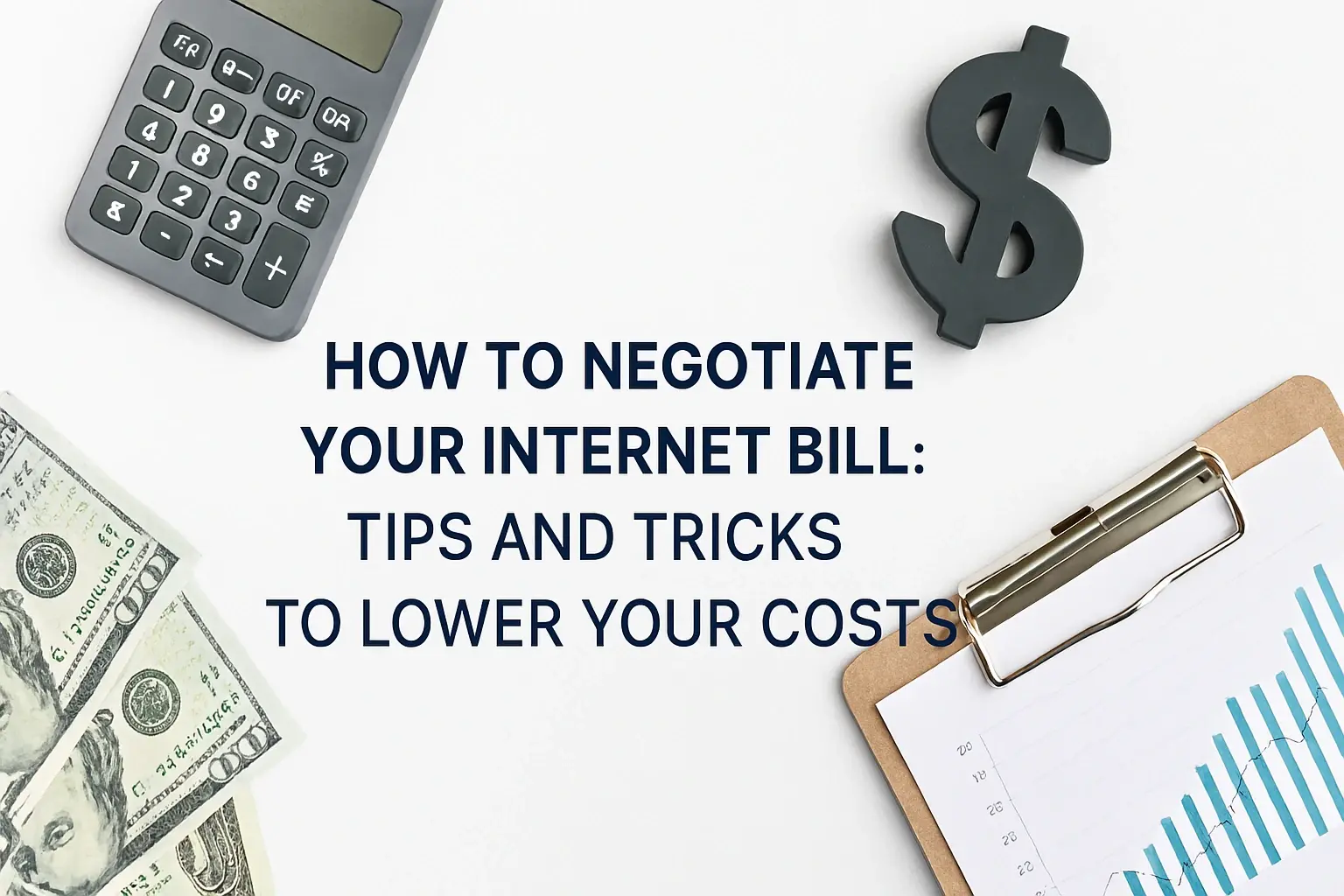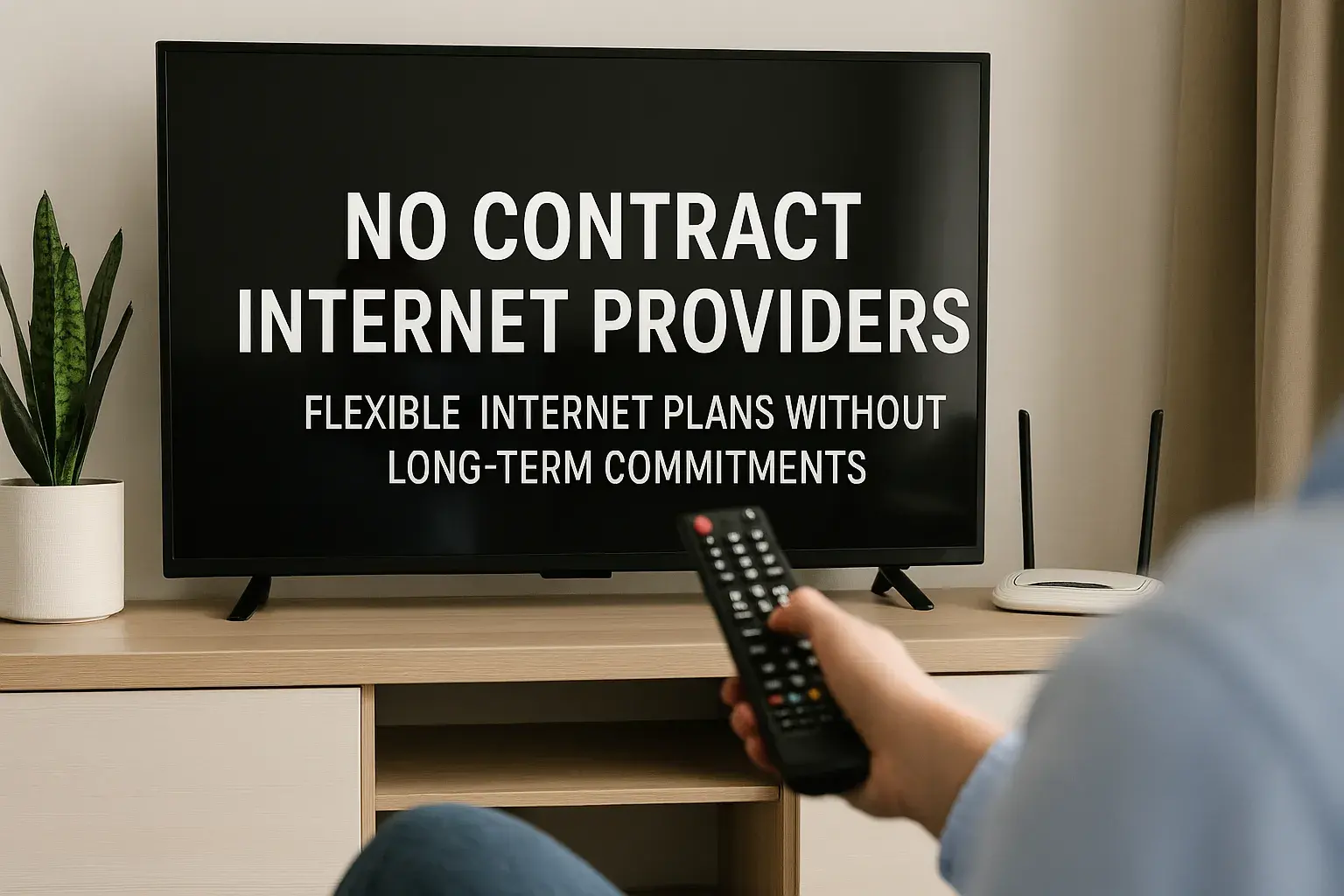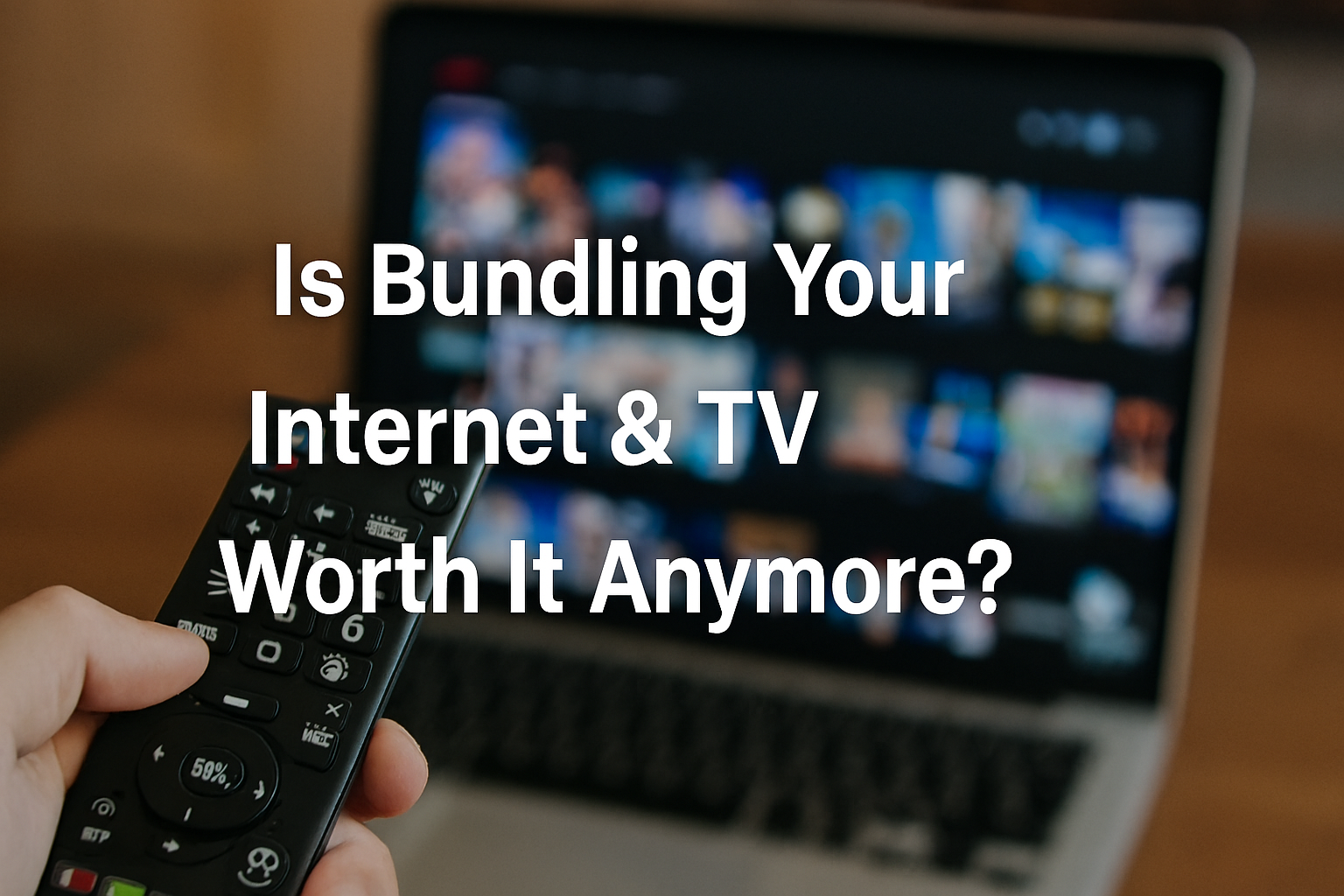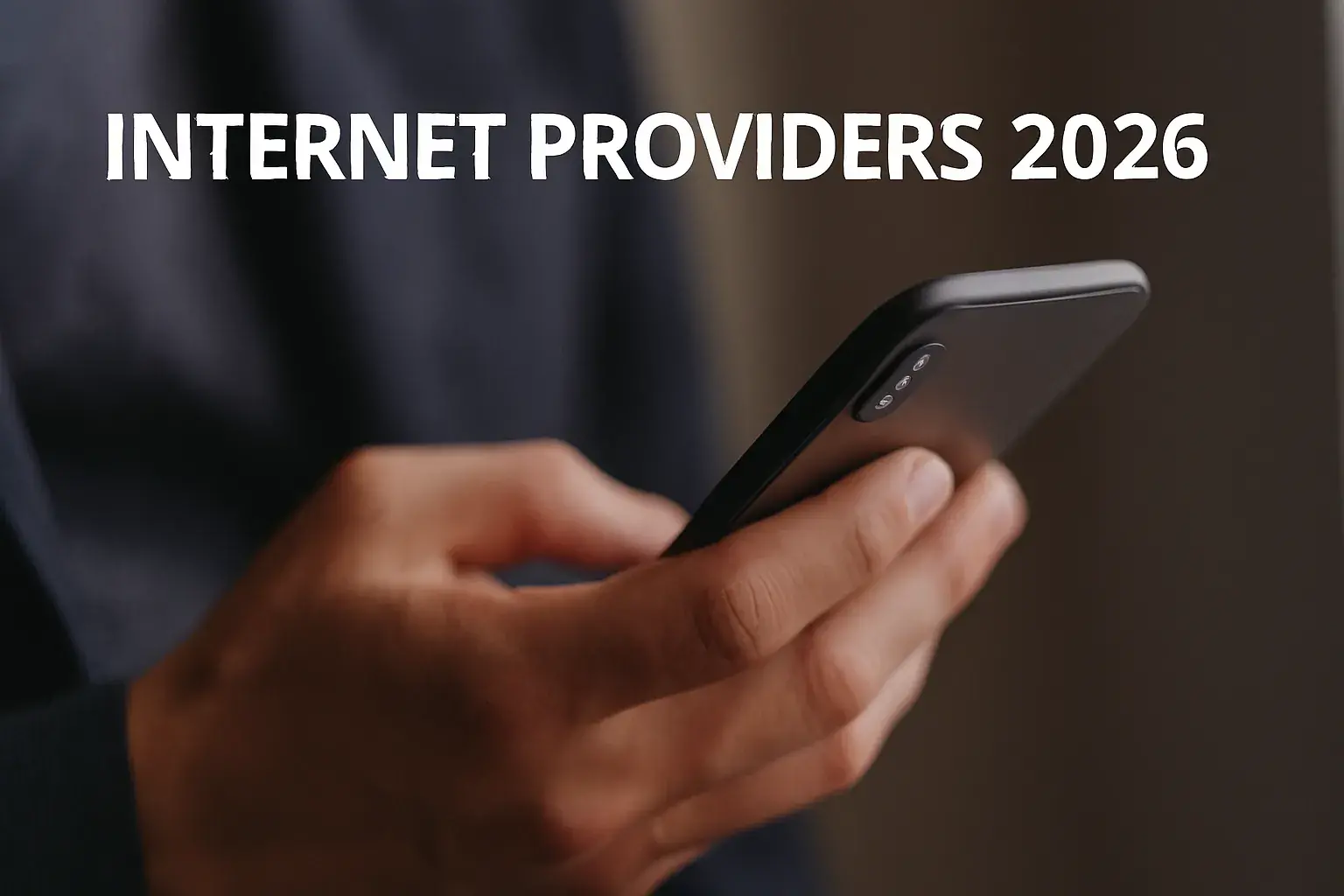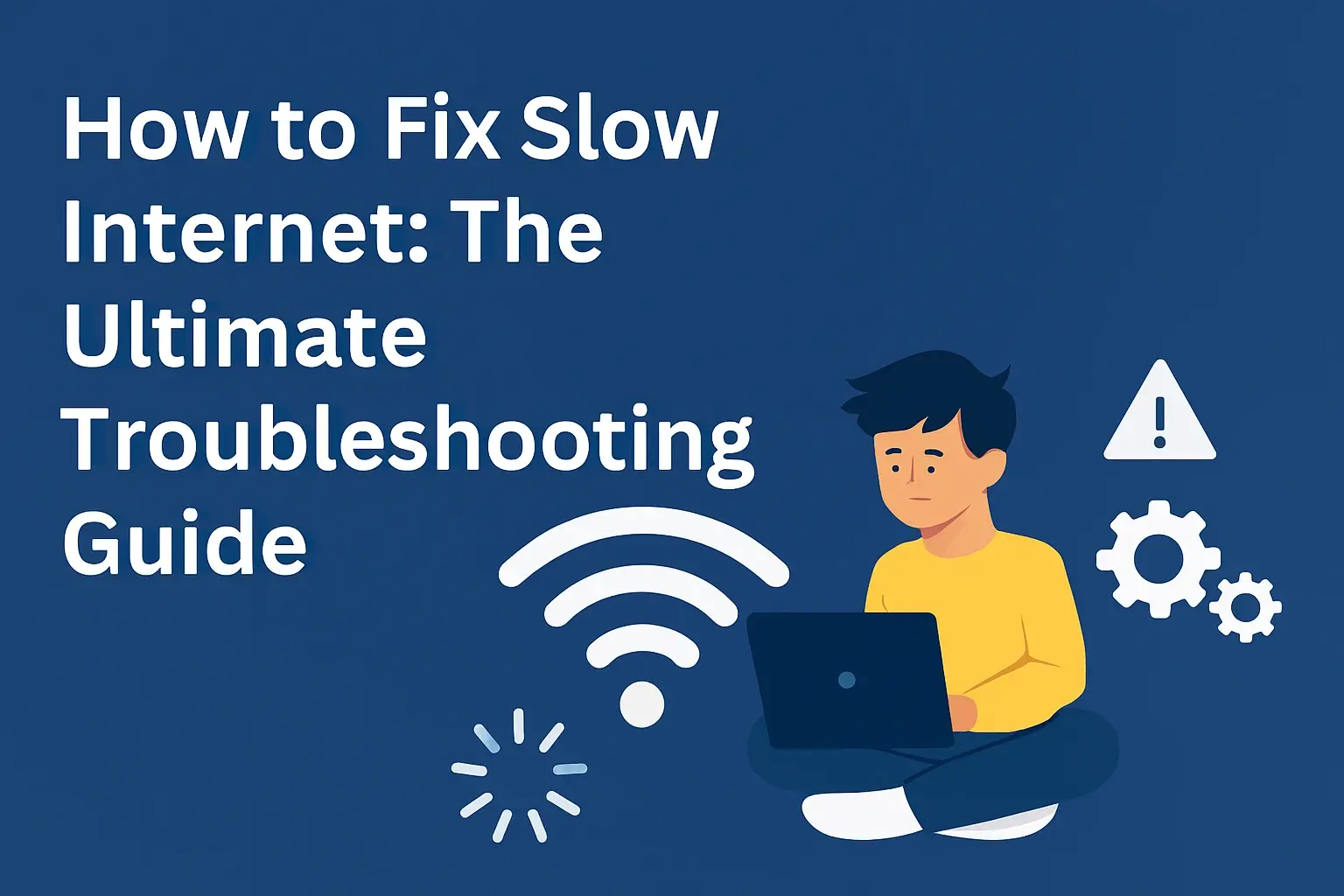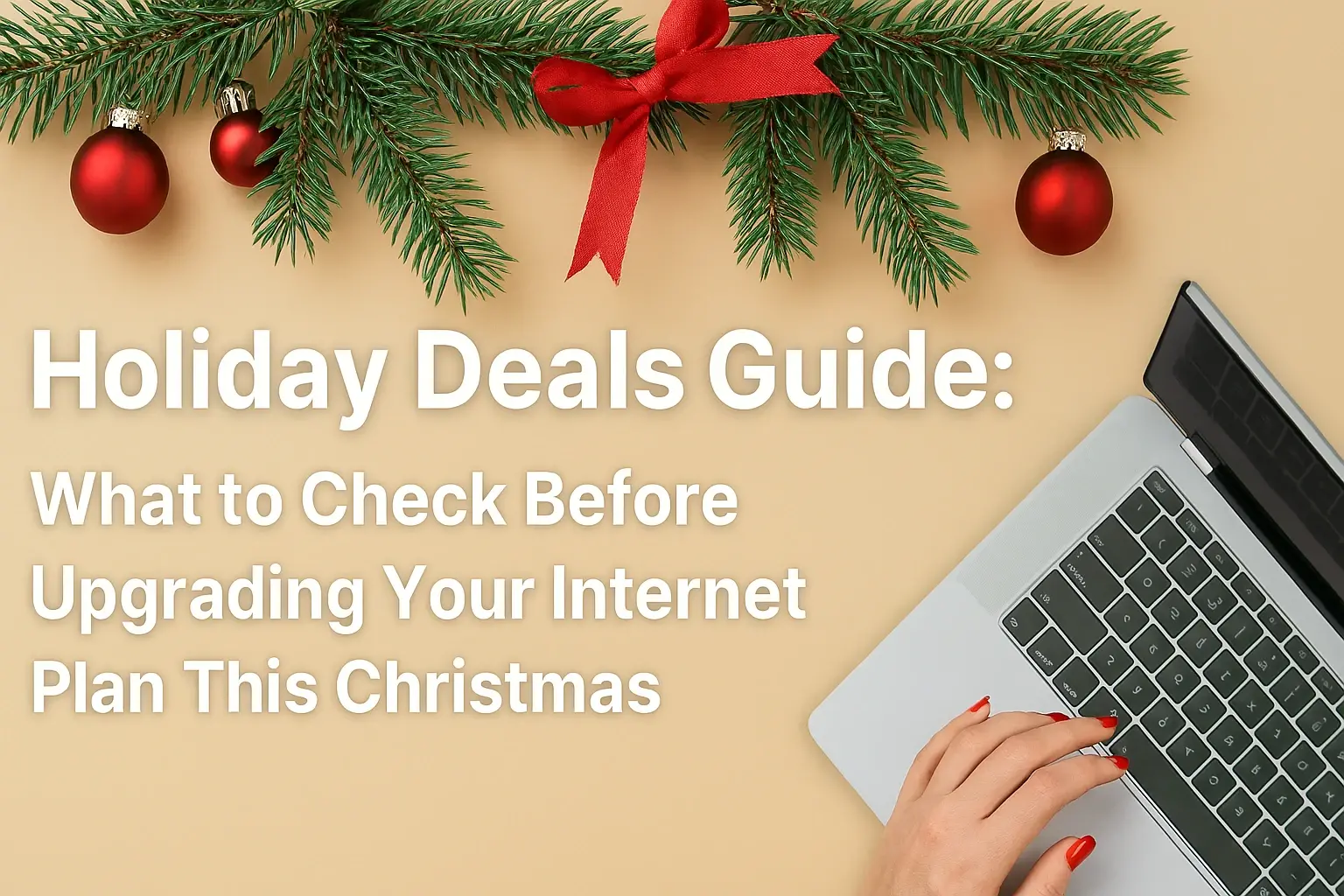How to get free unlimited data?
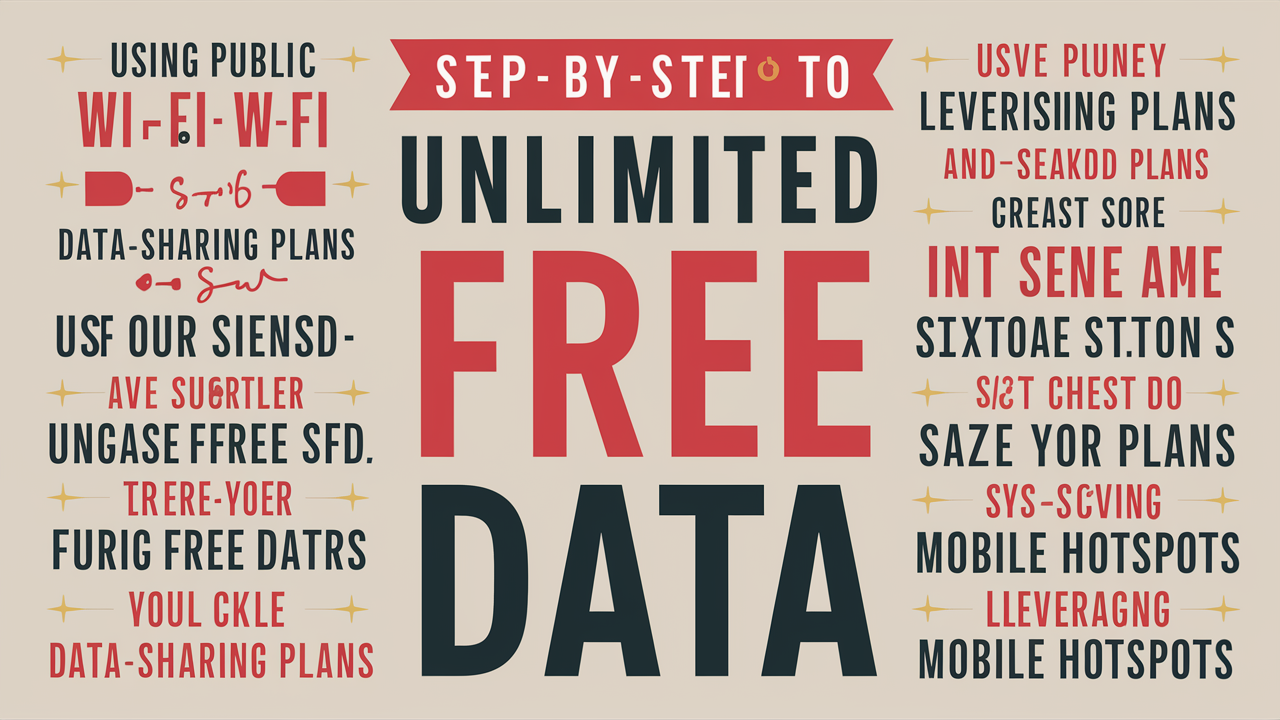
Seeking to break free from data caps and high monthly bills? This comprehensive guide explores legitimate and practical methods to achieve free, unlimited mobile data. We cut through the hype to deliver actionable strategies and realistic expectations for 2025, empowering you to stay connected without overspending.
Understanding Your Data Needs and Carrier Policies
Before diving into methods for obtaining free data, it's crucial to understand your current data consumption and the policies of your mobile carrier. Many users overestimate their needs, while others genuinely require significant data for work, entertainment, or communication. In 2025, mobile data usage continues to climb, driven by video streaming, cloud services, and an increasing number of connected devices.
Assessing Your Data Usage
The first step towards managing your data effectively is to know how much you're actually using. Most smartphones provide built-in tools to track data consumption. Here's how to find them:
- On Android: Go to Settings > Network & Internet > Mobile network > Data usage. You can often set data warnings and limits here.
- On iOS (iPhone): Go to Settings > Cellular. Scroll down to see your current usage and individual app data consumption. You can also reset these statistics periodically to track monthly usage.
Beyond your phone's settings, your carrier's app or website is the most accurate source for your billing cycle's data usage. Regularly checking these will give you a clear picture of your habits. Consider what activities consume the most data:
- Video Streaming: Services like Netflix, YouTube, and Hulu can consume several gigabytes per hour on high-definition settings.
- Online Gaming: Modern mobile games can be data-intensive, especially during downloads and online multiplayer sessions.
- Social Media: While individual posts might be small, the constant loading of images, videos, and stories adds up significantly.
- Video Calls: Platforms like Zoom, FaceTime, and WhatsApp use a substantial amount of data, particularly for longer calls or higher resolutions.
- Cloud Syncing: Services like Google Drive, iCloud, and Dropbox can automatically upload and download files, consuming data in the background.
By understanding these patterns, you can better identify if you truly need unlimited data or if optimizing your usage and taking advantage of specific offers will suffice. For instance, downloading large files or streaming over Wi-Fi whenever possible can drastically reduce your mobile data needs.
Carrier Policies and Data Throttling
Mobile carriers have diverse policies regarding data. While true "unlimited" plans are common, they often come with caveats. Many plans offer a certain amount of high-speed data, after which your speeds are significantly reduced (throttled) for the remainder of your billing cycle. In 2025, this threshold typically ranges from 50GB to 200GB, depending on the plan and carrier.
Understanding these limits is key. If your current plan throttles your speed after, say, 100GB, and you consistently use 120GB, you might be experiencing reduced performance. This is not the same as running out of data, but it can feel like it. Some plans also deprioritize your traffic during network congestion if you've exceeded a certain usage threshold, even if you haven't hit the hard cap.
Furthermore, carriers may have different policies for hotspot usage. Many "unlimited" plans include a limited amount of high-speed hotspot data, after which speeds are drastically reduced or even cut off. Always read the fine print of your mobile plan to understand these limitations.
Legitimate Ways to Get More Data (Often Free or Discounted)
The quest for "free unlimited data" often leads to unrealistic expectations. However, there are numerous legitimate strategies to significantly increase your data allowance, reduce your costs, or even obtain data at no direct charge. These methods require a bit of effort and strategic planning but can be highly effective.
Bundling Services
Many telecommunication companies offer discounts or bonus data when you bundle multiple services. This could include combining your mobile plan with home internet, television, or even streaming subscriptions.
- Example: A provider might offer an extra 20GB of mobile data per month if you also subscribe to their home internet service.
- Benefit: Consolidates bills and can lead to overall savings, with data being a valuable bonus.
Referral Programs
Most major carriers and even some MVNOs (Mobile Virtual Network Operators) have referral programs. When you refer a friend or family member who signs up for a service, you both receive a credit or bonus data. In 2025, these bonuses can range from 5GB to 50GB per successful referral.
- How it works: Share your unique referral link or code with potential new customers. Once they activate their service, the bonus is applied to your account.
- Maximizing: Share your referral code on social media (where permitted), with friends, family, and colleagues.
Loyalty Programs and Perks
Some carriers reward long-term customers with extra data. This might be an automatic increase after a certain number of years or a special perk you can claim. Keep an eye on your carrier's loyalty portal or app for these offers.
Family Plans and Shared Data
If you're part of a family or a group of individuals who can share costs, a family plan is often the most cost-effective way to manage data. These plans typically offer a large pool of shared data that all lines can use. In 2025, many family plans offer truly unlimited data, albeit with potential throttling after high usage thresholds.
- Benefit: Pooling data means one user consuming more doesn't negatively impact another if the total allowance isn't exceeded.
- Cost-saving: The per-line cost is usually significantly lower than individual plans.
Negotiating with Your Carrier
Don't underestimate the power of negotiation. If you're a loyal customer considering switching to a competitor, contact your current carrier and explain your situation. They may be willing to offer you a better plan, a data boost, or a discount to retain your business. This is particularly effective if you have a history of on-time payments and have been with the carrier for several years.
Leveraging Carrier Promotions and Loyalty Programs
Mobile carriers frequently run promotions, especially around holidays or new device launches, that can provide customers with extra data. Staying informed about these offers is key to maximizing your data allowance without additional cost.
Seasonal and Holiday Offers
Keep an eye out for special deals during Black Friday, Cyber Monday, back-to-school season, or other major holidays. Carriers often offer bonus data for new activations or as a thank-you to existing customers. These can be one-time bonuses or recurring monthly additions.
- Example: A carrier might offer an extra 10GB per month for 12 months for customers who sign up during a specific promotional period.
- Action: Subscribe to carrier newsletters, follow them on social media, and check their websites regularly.
New Line Activation Bonuses
If you're adding a new line to your account, carriers often provide a significant data bonus. This can be a one-time allotment or a recurring monthly bonus for a set period. If you have a family member or friend who needs a new line, coordinating activations can be a way to gain substantial free data.
Device Upgrade Deals
When you upgrade your phone, carriers sometimes bundle in data perks. This could be a limited-time offer for increased data or a permanent upgrade to your plan's data allowance. While not directly "free data," it's a data benefit tied to a necessary purchase.
Loyalty Rewards and Exclusive Offers
As mentioned, long-term customers are valuable. Carriers may have specific loyalty programs that offer perks like:
- Data boosts: A small, permanent increase to your monthly data allowance.
- Free premium features: Access to services like unlimited music streaming or video streaming without it counting against your data cap.
- Exclusive discounts: Reduced prices on data top-ups or international roaming packages.
Tip: Check your carrier's app or online account portal regularly. Many providers now have dedicated sections for rewards, loyalty benefits, and available promotions that you might not be aware of.
Utilizing Rewards Apps and Surveys
In the digital age, several apps and platforms offer rewards for engaging with them, which can sometimes be redeemed for mobile data or gift cards that can be used to pay for your phone bill. While these won't provide unlimited data overnight, they can supplement your allowance or offset costs.
Survey and Opinion Apps
Apps like Swagbucks, Google Opinion Rewards, and Survey Junkie pay users for completing surveys, watching videos, or playing games. The earnings are typically small per task, but consistent participation can add up.
- Redemption: Earnings can often be redeemed for PayPal cash, which can then be used to pay your mobile bill, or for gift cards to specific retailers or mobile carriers. Google Opinion Rewards directly offers Google Play credits, which can be used for apps and services.
- Time Investment: Be realistic about the time commitment. It takes consistent effort to earn a significant amount.
Cashback and Shopping Apps
Apps like Rakuten (formerly Ebates) or Ibotta offer cashback on purchases made through their platform. While not directly data-related, the accumulated cashback can be used to offset your mobile expenses.
Data-Earning Apps (Use with Caution)
Some apps claim to offer data in exchange for sharing your internet connection or completing tasks. Examples might include apps that reward you for letting them run in the background or for playing specific games. However, these often come with significant privacy concerns and can be unreliable.
- Privacy Risks: These apps might collect more data than they disclose, track your browsing habits, or even install malware.
- Data Quality: The "free data" offered might be extremely limited, slow, or come with hidden conditions.
- Recommendation: Thoroughly research any such app, read reviews, and understand its privacy policy before installing. Stick to reputable survey and cashback apps for safer rewards.
Carrier-Specific Rewards Programs
Some carriers have their own reward programs that allow you to earn points for activities like paying bills on time, using their services, or participating in special offers. These points can sometimes be redeemed for data top-ups or discounts.
Maximizing Public Wi-Fi and Alternatives
While not "free mobile data," effectively utilizing public Wi-Fi networks can significantly reduce your reliance on your cellular data plan, making your existing data last much longer or allowing you to use less data overall.
Identifying and Utilizing Public Wi-Fi Hotspots
Public Wi-Fi is available in a wide range of locations:
- Cafes and Restaurants: Many chains (e.g., Starbucks, McDonald's) and independent establishments offer free Wi-Fi to customers.
- Libraries and Community Centers: These are often excellent sources of free, reliable Wi-Fi.
- Shopping Malls and Retail Stores: Many malls and larger stores provide complimentary Wi-Fi.
- Airports and Train Stations: While sometimes limited or requiring a purchase, free Wi-Fi is common.
- Public Parks and Squares: Some cities offer free Wi-Fi in public outdoor spaces.
Tip: Use apps like Wi-Fi Map or Wiman to find free Wi-Fi hotspots near you. These apps often have user-submitted information and can show passwords if required.
Securing Your Connection on Public Wi-Fi
It's crucial to be aware of the security risks associated with public Wi-Fi. These networks are often unsecured, making your data vulnerable to interception.
- Use a VPN: A Virtual Private Network (VPN) encrypts your internet traffic, making it unreadable to anyone trying to snoop on the network. Many VPN services offer free tiers or trials.
- Avoid Sensitive Transactions: Refrain from online banking, entering passwords for sensitive accounts, or making purchases while on public Wi-Fi unless you are using a VPN.
- Enable Firewall: Ensure your device's firewall is enabled.
- Disable Auto-Connect: Turn off the feature that automatically connects your device to available Wi-Fi networks.
Mobile Hotspotting (Using Another Device's Data)
If you have a friend or family member with an unlimited data plan, they can often share their connection with you using their phone's mobile hotspot feature. This is essentially using their data allowance, so ensure they have sufficient data and are comfortable sharing.
- How it works: On the sharing device, go to Settings > Hotspot/Tethering and enable it. Your device can then connect to the hotspot like any other Wi-Fi network.
- Data Impact: Be mindful that this consumes the host's data. If their plan has a high-speed data cap, this will count towards it.
Wi-Fi Calling
Most modern smartphones support Wi-Fi calling. This feature allows you to make and receive calls and send/receive text messages over a Wi-Fi network instead of your cellular signal. This is particularly useful in areas with poor cellular reception but good Wi-Fi. It typically does not consume your cellular data allowance, though standard call/text rates may apply depending on your plan (usually unlimited if you have unlimited talk/text).
DIY Data Solutions and Community Networks
While less common and often requiring technical expertise, some individuals explore more unconventional or community-driven approaches to data access. These are generally not "free unlimited data" in the traditional sense but can offer alternative ways to connect.
Mesh Networks and Community Wi-Fi
In some urban areas, community initiatives are forming to create shared Wi-Fi networks. These often involve individuals contributing a portion of their home internet bandwidth to a larger mesh network, allowing participants to access the internet across a wider area.
- Example: Projects like Freifunk (in Germany) or various local mesh network groups aim to provide free, uncensored internet access.
- Availability: These are highly localized and depend on community participation.
- Considerations: Performance can vary, and setup might require specific hardware.
Utilizing Old Devices and Data Plans
If you have old smartphones or tablets with cellular modems, you might be able to put them to use. Some older plans or specific MVNOs might offer very cheap data plans, or you could potentially use them as dedicated Wi-Fi hotspots if they can connect to a stable Wi-Fi source and then broadcast it.
Caution: This is more about repurposing hardware and potentially finding very cheap data, not truly free unlimited data.
Leveraging Employer or Educational Institution Wi-Fi
If your employer provides robust Wi-Fi access, and your role allows for personal use during breaks or downtime, this can be a way to supplement your data. Similarly, if you are a student, university campuses often offer extensive Wi-Fi coverage.
- Policy Check: Always ensure you are adhering to the institution's or employer's acceptable use policy.
- Security: Be cautious about accessing personal accounts on work/school networks if policies restrict it.
Data Sharing Apps (Experimental and Risky)
There are emerging technologies and apps that aim to facilitate peer-to-peer data sharing. These are often in experimental phases and carry significant risks, including security vulnerabilities, privacy concerns, and potential violation of carrier terms of service.
- How they might work: Users could theoretically "lend" their excess data to others in exchange for credits or future data access.
- Risks: High potential for scams, malware, and unreliable service. Carrier terms of service often prohibit reselling or unauthorized sharing of data.
- Recommendation: Approach these with extreme skepticism. Stick to proven methods.
Avoiding Scams and Unrealistic Promises
The desire for free, unlimited data is a prime target for scammers. It's essential to be highly skeptical of any offer that sounds too good to be true. In 2025, these scams often evolve, but common themes persist.
Red Flags to Watch Out For
- Requests for Personal Information: Legitimate offers will not ask for your Social Security number, bank account details, or carrier login credentials upfront.
- Upfront Fees: Any service promising "free" data but requiring a setup fee, activation fee, or subscription cost is likely a scam.
- "Unlimited Data" Apps: Apps that claim to unlock unlimited free data for your phone are almost always fraudulent. They may install malware, steal your information, or simply not work.
- Unsolicited Offers: Be wary of random emails, text messages, or social media posts promising free data.
- Third-Party Software Downloads: Being asked to download and install specific software or "patches" to get free data is a major red flag. This is a common method for distributing malware.
- Guarantees of "Hacking" or "Exploiting" Carriers: These are illegal activities and the services offering them are scams or phishing attempts.
Legitimate vs. Illegitimate Sources
Legitimate Sources:
- Your mobile carrier (promotions, loyalty programs, family plans)
- Reputable survey and rewards apps (Google Opinion Rewards, Swagbucks)
- Public Wi-Fi networks (with security precautions)
- Referral programs from trusted companies
Illegitimate Sources:
- Websites promising free data generators or hacks
- Suspicious apps requiring excessive permissions
- Social media posts from unknown sources offering data giveaways
- Anyone asking for payment to "unlock" free data
What to Do if You Encounter a Scam
- Do Not Engage: Do not click on suspicious links, download files, or provide any personal information.
- Report It: Report the scam to the platform where you encountered it (e.g., social media site, app store). You can also report it to consumer protection agencies like the FTC (Federal Trade Commission) in the US.
- Warn Others: If possible, inform friends and family about the scam to prevent them from falling victim.
Prioritize your online security and privacy. The risks associated with engaging with scam offers far outweigh any perceived benefit of "free" data.
The Future of Mobile Data: What to Expect
The landscape of mobile data is constantly evolving. While the immediate quest is for "free unlimited data," understanding future trends can help in long-term planning and identifying new opportunities.
5G and Beyond: Increased Speeds, More Data Usage
The rollout of 5G technology continues to accelerate in 2025. 5G offers significantly faster speeds and lower latency than 4G LTE. While this enables richer experiences like high-definition streaming, AR/VR, and more sophisticated mobile gaming, it also means users are likely to consume even more data. Carriers are adapting by offering larger data allowances and more sophisticated unlimited plans to cater to this increased demand.
Satellite Internet and Fixed Wireless Access
For rural or underserved areas, satellite internet (like Starlink) and fixed wireless access (using 5G or 4G signals to provide home internet) are becoming more viable. While not directly mobile data, these technologies can reduce reliance on traditional mobile plans for home use, freeing up mobile data for on-the-go needs.
Wi-Fi Offloading and Network Convergence
As networks become more intelligent, there's a trend towards seamless "Wi-Fi offloading," where devices automatically switch to the best available network (cellular or Wi-Fi) without user intervention. This can help manage data usage more efficiently. We may also see greater convergence of mobile and fixed broadband services, with bundled offers becoming more common.
Regulatory Changes and Net Neutrality
Government regulations and policies around net neutrality can impact how data is managed and priced. Changes in these areas could influence the availability of zero-rating (where certain services don't count against data caps) or other data-centric promotions. Staying aware of these developments is important for consumers.
The Continued Value of Data Optimization
Regardless of technological advancements, optimizing your data usage will remain a crucial skill. Techniques like downloading content over Wi-Fi, using data-saving modes on apps, and being mindful of background data usage will continue to be valuable for managing costs and maximizing your data allowance, whether it's part of a paid plan or obtained through legitimate free methods.
In conclusion, while the concept of truly "free unlimited data" without any effort or caveats is largely a myth, a combination of smart strategies can significantly reduce your mobile data expenses and increase your available data. By understanding your usage, leveraging carrier promotions, utilizing rewards programs, and maximizing public Wi-Fi, you can stay connected affordably. Always prioritize legitimate methods and be wary of scams that promise the impossible. For 2025, a proactive approach to managing your data is the most effective path to staying connected without breaking the bank.
